Once Upon a Time (On a Paranoid Planet)
Episode Two: One Man's Conspiracy is Another Man's Theory
👉The Complete, Post Modern, New Age Idiots’ Guide to the Dark, Subversive, Malevolent Forces that Shape the Brave New World Order in Which we Live
Friends and subscribers, what follows are some semi-serious reflections on conspiracies, conspiracy theories, and their respective devotees. And same on one of the most successful, enduring and popular PSYOPS/social engineering experiments in living memory. Now six decades in the making. Still going strong.
🗣👉 ‘We find human faces in the moon, armies in the clouds; and by a natural propensity, if not corrected by experience and reflection, ascribe malice and good will to everything that hurts or pleases us.’ — David Hume
🗣👉 ‘And don’t you think that being deceived about the truth is a bad thing, while having a grasp of the truth is good? And don’t you think that having a grasp of the truth is having a belief that matches the way things are?’ — Plato
🗣👉 ‘There’s no such thing as paranoia—your worst fears can come true at any moment.’ — Hunter S Thompson.
👀🔗👉 Once Upon a Time (On a Paranoid Planet) — Episode 1️⃣: The Crippled Epistemologists of Conspiracy
👀🔗👉 Once Upon a Time (On a Paranoid Planet) — Episode 3️⃣: The Slow Movements of Suspicious Discontent
👀🔗👉 Once Upon a Time (On a Paranoid Planet) — Episode 4️⃣: We’re All Conspiracy Theorists Now and Then
Preamble: 'For too long the proprietary domain of the time-rich "whack-job", in an age of growing paranoia, insecurity, fear, loathing, mistrust, suspicion and political disillusion—fuelled as it is by mounting government, corporate and institutional secrecy, surveillance, incompetence, corruption, subterfuge, propaganda, censorship, maladministration and criminality at the highest levels of global power—it’s perhaps as good a time as any to ‘rehab’ the rep of the much-maligned “conspiracy theory”. In doing so we by necessity go in to bat for and on behalf of its more dedicated disciples past and present. We’re talking here of course those occasionally useful nuisances we just love to label then 'libel' as “conspiracy theorists".
Having secured the perimeter, dead-bolted the doors n' windows, and drawn the drapes n’ blinds, it's time to embark on what might turn out to be a quixotic quest, to wit: Compiling a post modern, new age idiots’ guide to the dark, malevolent, conspiratorial forces shaping the New World Order into which we’re slowly but assuredly being socially and psychologically engineered. With desperate times calling for even more desperate theories, in this second instalment in a series Greg Maybury breaks out the aluminum foil, of which there’s plenty to go round for all. Or BYO. Read on...😗😉|—| ===
— You Can’t Make this Sh*t Up!
As I was putting the finishing touches on the first episode in this series, reports of the assassination attempt upon the life of the Man Who Would be President (Again)—one Donald Trump—began flooding the airwaves and social media platforms and everywhere in between. So much so it was ‘standing room only’ as it were! That said, along with the decidedly dodgy circumstances under which this attempted hit on MagaMan™️ played out (we’ll explore the gory details further in future instalments), one could not fail to notice the beguiling serendipity of the moment.
As to the identity of the shooter, my first reaction upon hearing the news was that it might’ve been Trump’s Numero Uno Fan Boy Robert de Niro finally going full postal on the former’s ample ass by channeling his lone gunman alter ego Travis Bickle from Taxi Driver. For the uninitiated, this is the iconic 1976 film in which de Niro plays a ‘lone-nutter’ who fantasises about (wait for it), offing a politician whilst delivering a speech at a campaign rally. You know, an ‘art imitates life’ thing.
Given de Niro’s own well documented ‘neuroses’ vis a vis all things Trump (see here and here), and the widely acknowledged, not always metaphorical, links between the theatre of politics and that of Tinseltown—the popular political trope “you can’t make this shit up” alone being an all too frequent nod in that direction—the temptation to jump to such a conclusion was difficult to resist. As it turned out, when we view the unforgettable images of the day’s events, the performance of the ‘lead actor’ was mos’ def’ Oscar®️ worthy! One suspects even his bete noir de Niro wouldn’t begrudge him that.
All that said, as further details emerged, I quickly rejected that early theory in lieu of considering more plausible hypotheses. Irrespective of the still unfolding ‘who, what, when, where, and how—if not so much why—minutiae of the apparent assassination attempt (a staple of many a conspiracy theory), someone though most surely did “make this shit up”.
At this stage though it’s still anyone’s guess as to whether it was ‘made up’ by folks in Washington or Hollywood. Though this time perhaps in all likelihood being a la Wag the Dog—incidentally another feature film in which de Niro appeared and in which the narrative finds the denizens of DC and the American Dream Factory finding common conspiratorial ground—a joint venture production.
At all events, by definition conspiracies (real or imagined) involve more than one person, and it’s safe to assume based on what we know this one ticked most if not all the boxes. So whilst tantalising to be sure, my de Niro theory in any event was never going to cut it for long. And although I’ll forthwith largely refrain from further conspiratorial speculation, as they might relate directly to the broad themes covered herein a few observations are both necessary and appropriate about this momentous event.
All of which is to say, these reports were followed inevitably by all manner of conspiracy theories as to what actually happened, who might’ve been responsible, and—apart from what may appear to be the obvious or ostensible aim of such an exercise (i.e. ‘offing’ the candidate and thereby changing the course of history)—what might have been the purpose of orchestrating such an attempt. As I write this one week later, they are coming thick n’ fast. Though admittedly I’m not holding my breath awaiting truthful revelations about what actually happened.
With that all in mind, there seems no doubt this attempt on Number 45’s life is not at all what it seems. This is fitting I suppose as when one comes to think of it, neither is the man himself, or come to think about it, the overarching Grand American Narrative itself. The bottom line is that this was not, it’s safe to say, another out of the blue, lone-gunman nutter, ‘off his meds’ episode in that always enthralling, ‘never-a-dull-mo’, expect the unexpected “Narrative”.
Whilst the Candidate appeared to dodge a bullet with his name on it, a couple of things are a dead cert at this point. Firstly, the assassination attempt—bogus or the real McCoy—will no doubt enter that “Narrative” record as one of its most defining, seminal, memorable moments in recent history. This is regardless of
a) what any one of us think about Trump (including de Niro all his ‘liberal’ Hollywood mates who share his opinion about the man);
b) what in fact is the real truth behind the events of what happened (if indeed as noted we ever find out);
c) how things might unfold across the political landscape from this point onwards if as is now widely anticipated he is reelected; or
d) how the circumstances surrounding this event and its impact might be interpreted esp. by future historians and indeed, future conspiracy ‘theoreticians’.
Moreover, political junkies in general and folks of a conspiratorial bent in particular are going to be kept quite busy in the weeks and months ahead sorting out the sh*t from the tan-tinted Shinola™️. I for one have ‘cleared my dance card’ for the foreseeable. And those who were the instigators of this apparent attempt (again real or staged) to whack Trumpie will doubtless be just as busy keeping a lid on their conspiratorial gambit in this regard and any rogue narrative that threatens to wander too far off the tightly patrolled reservation.
At all events, the next few months were always going to be a wild ride on the wild side for us all. By significant orders of magnitude things just got a whole lot wilder. America, this is your country we might say! The Greatest Show on Earth bar none. Few things in life are a “dead cert”, yet this reality is one of them.
Returning to our central theme, one thing is also certain: There’s never been any shortage of fuel to keep the home-fires of dedicated conspiracy theorists—and their loyal cults following—burning. As we’ll see, they have a propelled a great deal of that Grand Narrative. As noted, they’re already saturating the ether with their latest creations, some seemingly more plausible than others. (See here also.)
It should also come as no surprise that the Trumpster—love him or loathe him even more—is still the du jour ringmaster of ceremonies, the centre of political gravity. No-one comes close. None of which is to suggest Trump is a) all that he seems or claims to be; b) the master of his own political domain and his own man; or [that] c) he's the saviour who will pull America back from the abyss in what amounts to his Second Coming. Not by as I’m wont to say, a long shot from the Texas School Book Depository!
For those readers seeking an objective analysis of the significance of the events and their overarching political implications, I recommend reading Last American Vagabond Ryan Cristian’s take on matters, one which I generally share. After declaring unswerving belief that Trump is just another player for the “Predator Class” that ‘actually controls the political parties and the government’, the “Vagabond” added the following, the familiar underpinnings of legitimate and rational (as distinct from the ‘unhinged’ variant) “conspiracy theory” analysis unmistakable:
‘…I’ve been warning since at least 2018 that Trump is not a friend of liberty. He is not a hero and not a savior. He is an actor playing a role…Trump’s connections to Jeffrey Epstein, his mentorship with Roy Cohn—a known pedophile—and his bailing out by Rothschild bankers in the 1990’s are plenty of reasons to be skeptical of the narrative that Trump is the only thing standing in the way of complete and total tyranny—especially when [he] displays authoritarian leanings himself. He is useful to the Predator Class as The Great Divider, stoking the flames of division while duping well-intentioned “Patriots” into making excuses for his anti-liberty actions. An attempted assassination on Trump only empowers him further and solidifies the near deification of him by his devout followers.’ [Emphasis added.]
All that being said, few would argue that he’s not going to be a shoe-in to win in November, and will do so without breaking a sweat. But hey mon cheries, that’s a story for later. Enough heavy lifting from me for now on the latest episode of the Trump dog n’ pony show. Stay tuned.
— Authority, Power, Dissent, Public Discourse & Conspiracy
At this point, the following question needs to be asked: What is it about conspiracy theories then that compels some folks to imbibe the narrative and others to reject it? Current events such as those explored above—and more than a few others in our recent history—give us plenty to contemplate in this regard. Hopefully what follows might be of assistance to some looking for some clues, (i.e. at least for those not busy cooking up their own bespoke theories).
In attempting to answer this question, in her article In Denial of Democracy: Social Psychological Implications for Public Discourse on State Crimes Against Democracy Post-9/11 (2010), Dr Laurie Manwell made some key observations about how we perceive the world around us, and if one likes, the bespoke T&Cs we bring to the table in doing so. ‘[V]isual stimuli…transduced by the rods and cones in the eyes, and sent by electro-chemical signals to the central nervous system via the optic nerves’, she noted,
‘…does not go directly to the occipital cortex which is the…region responsible for processing information. Instead, it first goes to the lateral geniculate nucleus of the thalamus, another region of the brain that is a part of the lymbic system and [which is key] to emotional arousal.’ [Emphasis added.]
Although her explanation might come across as something of a psycho-babble word salad for some, what the good doctor appears to be saying is that we can—and frequently do—experience an emotional reaction to something before we are consciously aware we’ve seen it or even understood it. Needless to say we’re witnessing this happening right in front of us as we speak.
Indeed, Manwell’s academic ‘wheelhouse’ is in part the study of the psychological resistance we bring to entertaining alternative explanations at odds with our own bespoke realities. But it’s moreso those pertaining to the official narratives of those events and which also contradict ones which so easily lend themselves to conspiracy theories and inspire the adherents thereof. (We can call this “reaction” cognitive dissonance, or call it the paradigm effect. Some even call it—wait for it—trans marginal inhibition. We will explore these concepts more deeply in later episodes.)
Either way, her thesis clearly has particular relevance herein. Her premise is simple:
a) protecting our democracy and freedoms requires that we’re clued up on how we’re manipulated by government, media, institutional, corporate and other vested interests into forfeiting our civil liberties, legal rights, and personal freedoms; and
b) alerting us to the cognitive impediments that have been purpose built to prevent us from processing information…and facts that challenge preexisting assumptions about authority, power, dissent, and public discourse in democratic societies.
— Conspiracy Theory in America (and Elsewhere)
In Conspiracy Theory in America, the late Lance de Haven-Smith‘s welcome account of the history and ‘pathology’ of conspiracy politics in American civic culture, he makes a number of compelling observations. These are central to understanding in greater depth many controversial aspects of pivotal events and turning points in the Narrative, and the motives and ambitions of the dramatis personae who’ve been central players in driving it.
In doing so he provides us with a fuller appreciation of the causes and effects of those “pivotal events” that have both driven and directed that narrative. This even going back well before the Founding Fathers began referring to the Revolution in the past tense, and thereafter contemplating their freshly minted nation’s future and its preordained, exceptional destiny, manifest or otherwise.
In fact well before even Paul Revere’s time, America’s historical twists and turns seemed always, if not at the time then certainly with hindsight, [to] pivot around the conspiracy construct. It was, as they say, ever thus. Think the Salem Witch Trials of the 1690s. Think the House un-American Activities Committee hearings of the 1940s-50s (aka the McCarthy hearings). There are countless others, well documented though not always well known.
For his part de Haven-Smith leaves us in no doubt that he’s not especially fond of those conspiracy theory debunkers whose default response is to pooh-pooh all theories as ludicrous, dangerous—indeed, even “unpatriotic hokum”—and to denigrate their adherents as socially challenged loony ‘toon’, screw loose, time-rich fruit loops or some variation on the theme (my words, not his).
None of which is to suggest he buys all the conspiracy theories on offer by any means. But on this he opines the following: Most of the criticism aimed at undermining popular conspiracy narratives—such as the JFK Thing or the 9/11 Thing—is based on a ‘sentimentality about America’s political leaders and institutions rather than on any unbiased reasoning and object observation’.
I guess here we’re talking about the benefit of some measure of reasonable doubt versus the downside of unreasonable suspicion or even unreasoned certainty. Put another way, we’re talking about embracing a more nuanced, or far less rosy hued impression of the motives and ambitions of our political classes, the imperative of which is becoming increasingly critical with each generation of them.
From all this it’s hard to escape the conclusion that de Haven-Smith has some difficulty reconciling this “sentimentality” with any known, rational premise for doing so. For those of us not naturally inclined towards sentiment of this sort when we contemplate the general character, mindset, and scruples of our average, garden variety political or public figure, this especially might be the case. As it turns out, for many conspiracy debunkers and skeptics (and one assumes the actual conspirators themselves along with those who’ve covered for them), the very foundations of unofficial conspiracy narratives are,
‘…offensive, [and] constitute slurs against America’s leaders and institutions, [slurs] that damage the nation’s reputation and may encourage violence against U.S. officials at home and abroad’.
De Haven-Smith says that a common mistake made by the debunkers is their Pavlovian predisposition to declare any and all suspicions about everything from routine government, corporate or institutional secrecy and skullduggery as an illegitimate exercise, or even as aberrant behaviour. This embraces any number of such, up to and including the much touted millenarian machinations of the global power elites (Shadow Government, New World Order, One World Government, The Great Reset, the Fourth Industrial Revolution, Agenda 2030, Deep State anyone?), and other assorted political huggermuggers as “conspiracy theories”.
They argue that on the basis of the most improbable claims, all unsubstantiated suspicions of elite political crimes (or “state crimes against democracy”—SCADs—as he defines them), are “far-fetched fantasies” and [are also] “destructive of public trust.” Herein we only need recall the words of George W Bush in the wake of 9/11 where he chided one and all not to tolerate “outrageous conspiracy theories” that were then doing the rounds. In the process ‘Junior’—by inadvertently invoking the power of that old adage “never believe anything until it is officially denied”—all but invited “one and all” conspiracy theorists to the conspiracy party and to throw their tinfoil hats into the ring. As it were!
Yet, it seems just as plain for those looking at least, that the folks who’ve consistently done the most to destroy that “public trust” are the very ones in whom the “public” placed the most (and by implication, far too much) trust to begin with. So this theory itself could well qualify under the heading of a “conspiracy”, albeit of a slightly different variant.
— The Best Kept Secrets (Of Mice and Malevolent Men) —
Be that as it may, when it comes to the use of the phrase “conspiracy theory” in the pejorative (which it almost always is), de Haven-Smith observes something of a “fatal defect” in the way most scholars, political commentators, journalists and the power political castes themselves (stereo)typically approach the topic: He says the “surprising” thing is that in deriding people with the “you’re just another conspiracy theorist” riposte, they have,
‘…failed to notice that the use of the term to ridicule suspicions of elite political criminality betrays the civic ethos inherited from the nation’s founders. Those who now dismiss conspiracy theories as groundless paranoia have apparently forgotten the U.S. was founded on a conspiracy theory’. [My emphasis.]
He further notes that whilst most Americans are more or less familiar with the more readily identifiable, self-evident truths and inalienable rights of the Declaration of Independence he says,
‘…they are less au fait with the more detailed enunciations regarding the abuses of tyrannical design, which themselves were designed to reduce them under absolute despotism, [deny them] their right…to throw off such government, and in the process provide new guards for their future security’. [My emphasis].
In short, the “Fathers” considered political power an inherently corrupting influence that makes political conspiracies against people’s interests and liberties almost inevitable. Herein he seems to be suggesting that the Fathers would view today’s norms—indeed the memes—decrying conspiratorial suspicion as “not only arrogant, but also dangerous and un-American.” [Emphasis added.] One might also argue it is decidedly unhealthy for the polity, and toxic to the aforesaid civic culture and the collective political and social psyche. Yet it would seem this view has been turned entirely on its head. And not by accident it would appear.
To be sure, de Haven-Smith was not alone amongst many who’ve leapt to the defence of the much put upon “conspiracy theorist”. Along with numerous others of a similar mindset, what makes his insights compelling is his exploration of the origins of the phrase “conspiracy theory” itself. By extrapolation he seems to be referring to the roots of the intellectual milieu and politico-philosophical mindset. These are the very ones that underpin the pejorative response to the theories themselves and the hostility directed toward people who espouse them, or even those who accord them any possible legitimacy or credence.
Again, as we noted in the first episode the term was generally unheard before the assassination of JFK—which possibly up until 9/11 at least—we might’ve considered the Mother of All Modern Conspiracy Narratives. In fact it wasn’t until after the Warren Commission handed down its report in 1964 on the JFK hit that the phrase inserted itself into common political parlance and begun to be used ad nauseum by the mainstream media (the meme-media?) firstly and others, especially so by those all too willing to quaff the Commission’s Kool-Aid.
This reaction was largely in response to those who both held and voiced deep suspicions about the Commission’s findings, qualms of course it has to be said now 60 plus years onwards, are infinitely more profound, widespread—to say nothing of highly plausible. Indeed all but the most die-hard debunkers would say these suspicions are more justified than they ever were. The weight of evidence is, in a word, irresistible.
— Killing the Media Mockingbirds
As we also mentioned in Episode One, it was the Central Intelligence Agency that dusted off and ‘reengineered’ the phrase, then resurrected the concept in modern usage terms; that is, as it was used in and by the mainstream media (MSM) and every man and his dog. The ‘one-stop-shop’ for all the news that’s fit to fake and hide that is the MSM of course, has all too willingly been complicit in what is arguably the CIA’s most successful and insidious conspiratorial gambit, a statement that in and of itself is a big call. Indeed, their complicity was essential to its construction, in more ways than the obvious. As we’ll see.
Which is to say, for those ‘students’ of the CIA who’ll be all too familiar with The Company’s tawdry history (aka “The Family Jewels”) and its sub rosa domestic and foreign machinations in general—and particularly its broad sweep cognitive infiltrations into the body politic and public discourse via Operation Mockingbird, a topic especially relevant to any discussion of conspiracy theories—once again this is all too plausible. ‘Op-Mock’ is arguably both the ‘mother’ and the ‘Johnnie Walker’ of all ‘psy-ops’, and an essential component of the conspiracy theory contrivance! The gift that keeps on giving as it were. Those doubting that only need to peruse the New York Times (see here and here) and/or the Washington Post or any of the major print or electronic media marques and compare the content and analysis offered with factual reality, and they’ll appreciate this point.
Op Mock had its roots going back to the late 1940s, pioneered by Frank Wisner, along with others in the inner circle. Wisner was a legendary CIA alumnus from its startup days whose own CoD is in fact the subject of the odd conspiracy theory, (a fact which might give some pause for those folks who argue that ‘Americans don’t do irony’.) Be that as it may, as successful as OpMock was/is, for some reason the ‘trench-coat ‘n trilby’ tribe down on the Langley Farm don’t make much of a fuss about it on their official website. Funny that! They can be an awfully modest bunch of folks at times. It must be a Spy v Spy thing!
In short, if one is inclined to believe all they read, hear and/or see in the mainstream media, then one has ‘Op-Mock’ to thank for that. Though he is far from the only one who has spilled his guts on such matters, this reality was memorably underscored in 2014 by the German journalist Udo Ulfkotte. His backstory is worth looking at in some depth. A former editor of Frankfurter Allgemeine Zeitung, one of Germany’s largest newspapers, he publicly ‘fessed up to the endemic corruption, deception, mendacity and manipulation that is a hallmark of Western mainstream or establishment ‘news’ media.
Ulfkotte’s frank revelations were later the subject of a book—Bought Journalists: How Politicians, Intelligence Agencies and High Finance Control Germany’s Mass Media—wherein he demolished any pretence that the media might be trusted; it is startling even for folks who hitherto harboured few illusions about the integrity of our most respected media brands.
Ulfkotte provided yet again more evidence—if it was ever required—that the conspiracy theorists (bless their cotton/nylon blend socks), might have been actually onto something from the off. In doing so he underscored the media’s central role in establishing and sustaining the official narratives of those who would rather let sleeping conspiracies lie, along with debunking any theories that wandered too far off the reservation.
He declared that he was coerced into publishing the works of intelligence agents under his own name, adding that noncompliance with these expectations would result in him losing his meal ticket. After noting that corruption of journalists and major news outlets by the CIA and other intelligence agencies is ‘routine, accepted, and widespread in the western media’, [and] that journalists who do not comply either cannot get jobs at any news outfit, or find that doing so is a career inhibiting move, he added the following, the scenario which ten years later shows every sign of materialising:
‘I’ve been a journalist for about 25 years, and I’ve been educated to lie, to betray, and not to tell the truth to the public. The German and American media tries to bring war to the people in Europe, to bring war to Russia. [I] am going to stand up and say…“it’s not right what I’ve done in the past, to manipulate people, to make propaganda against Russia, and it’s not right what my colleagues do, and have done in the past, because they are bribed to betray the people not only in Germany, [but] all over Europe”… there is always people who push for war…not only politicians, it is journalists too. We have betrayed our readers [and] I’m fed up with this propaganda.’ [Emphasis added.]
Predictably, as if on cue, he was at the time dismissed as (wait for it) a “conspiracy theorist”; his claims were called out as “frivolous” by many. These included no less an authority on such matters as Wikipedia, and of course the very subjects of his revelations, those in the establishment media.
Incidentally, in 2017, Ulfkotte died suddenly from a heart attack at aged 56, under what many consider to be suspicious circumstances. Predictably (again), several conspiracy theories abound as to whether he died from natural causes. Whether he did or didn’t is a debate for another time. At this point people will have to decide for themselves if his claims have a ring of truth.
For this writer though, I have few illusions. Suffice to say, such was his profile alone—and the attention his extraordinary revelations received—Ulfkotte would not have endeared himself to a lot of very powerful, conspiratorially inclined folks in the power political sphere. It’s the inimitable and irrepressible Hunter S Thompson who provides an ideal reality check here:
‘Not everybody is comfortable with the idea that politics is a guilty addiction. But it is. They are addicts, and they are guilty and they do lie and cheat and steal—like all junkies. And when they get in a frenzy, they will sacrifice anything and anybody to feed their cruel and stupid habit, and there is no cure for it.’
And that “addiction” includes—in fact fuels—their collective predisposition toward deep corruption and criminal conspiratorial conduct, conduct which includes conspiring to keep their asses covered after the fact. It comes with the territory, it’s in the job description.
To round things out herein, perhaps the following is good way to go. Harking back to the “Founding Fathers”, possibly the most cogent observation de Haven-Smith makes in his indispensable tome—clearly directed at conspiracy theory debunkers—is that the United States itself was in fact birthed as a direct result of a conspiracy theory, one that like so many have done, turned out to be all too true.
In fact who was the aforesaid Paul Revere if he was not a pioneer conspiracy theorist in the service of the Fathers’ grand ambitions for fomenting revolution in order to gain independence from their oppressive colonial masters (and into the bargain hopefully get a decent cup of untaxed tea at a reasonable price)?

Herein one is tempted to engage in some counterfactual hypothesising: what might the outcome have looked like if they and their ‘revolting’ (and soon-to-be) Sons of Liberty and Daughters of the Revolution ignored or ridiculed Revere’s frenzied conspiratorial urgings on his infamous midnight ride to warn them the full force and might of the British Imperial army was on its way to crush them all for daring to defy King George III and his dictates? The mind boggles at the possibilities to be sure if they had all rejected his dire “The British are Coming” warnings with the standard refrain: “Oh Paul, you’re just another one of those conspiracy theorists”, and then proceeded to stick him in the stocks in the town square for disturbing the peace and spreading fake news. OK, I digress here, but….
Digressions notwithstanding, we will however return to this and other similar motifs later. This includes the implied one about conspiracy theories that turned out to be “all too true”. Indeed, one of the driving forces behind the move to restrict our freedom of speech is that the powers that be detect a critical mass awakening amongst the populace that—courtesy of these revelations becoming more widespread and recognised and more people more willing to embrace conspiracy theories as conspiracy realities than even before—those same powers are now circling the wagons. Efforts throughout the West to termite our free speech entitlements are alone evidence of that.
In simple terms forget everything you ever thought you knew about history—in the words of Henry Ford, it is “all bunk” after all, although possibly not in the way Hank envisioned when he ‘inflated’ that memorable thought bubble! Herein we might paraphrase The Model T Man again, to wit: ‘you can have any conspiracy theory you like, as long as it’s ours’! Which is essentially the official line of those hell-bent on turning our body politic into a functioning cryptocracy.
As for their own country’s place in the geopolitical order and the role of their Power Elites and assorted Crypto-Statists in making it what it is today, we can only hope that a sufficient number of Americans reach a critical mass of concerned consensus about the so-called oft-referenced “New World Order” and the real agenda behind those who are driving its evolution—what we might call the Global Politico-Techno-Governmental-Corporatist Collective. From there we might jointly do something proactive about it before the Good Ship America hits the iceberg, capsizes, and takes the rest of the West down with them.
That is of course if it is not already too late. There’ll be little time one suspects to concern ourselves with ‘rearranging the deck chairs’ when the penny drops. Any cursory reading of a book dealing with the demise of empire—any empire—would though suggest it may very well be.
Well might we say, nice republic, shame about the empire. ===
Greg Maybury, Monday 22 July, 2024.





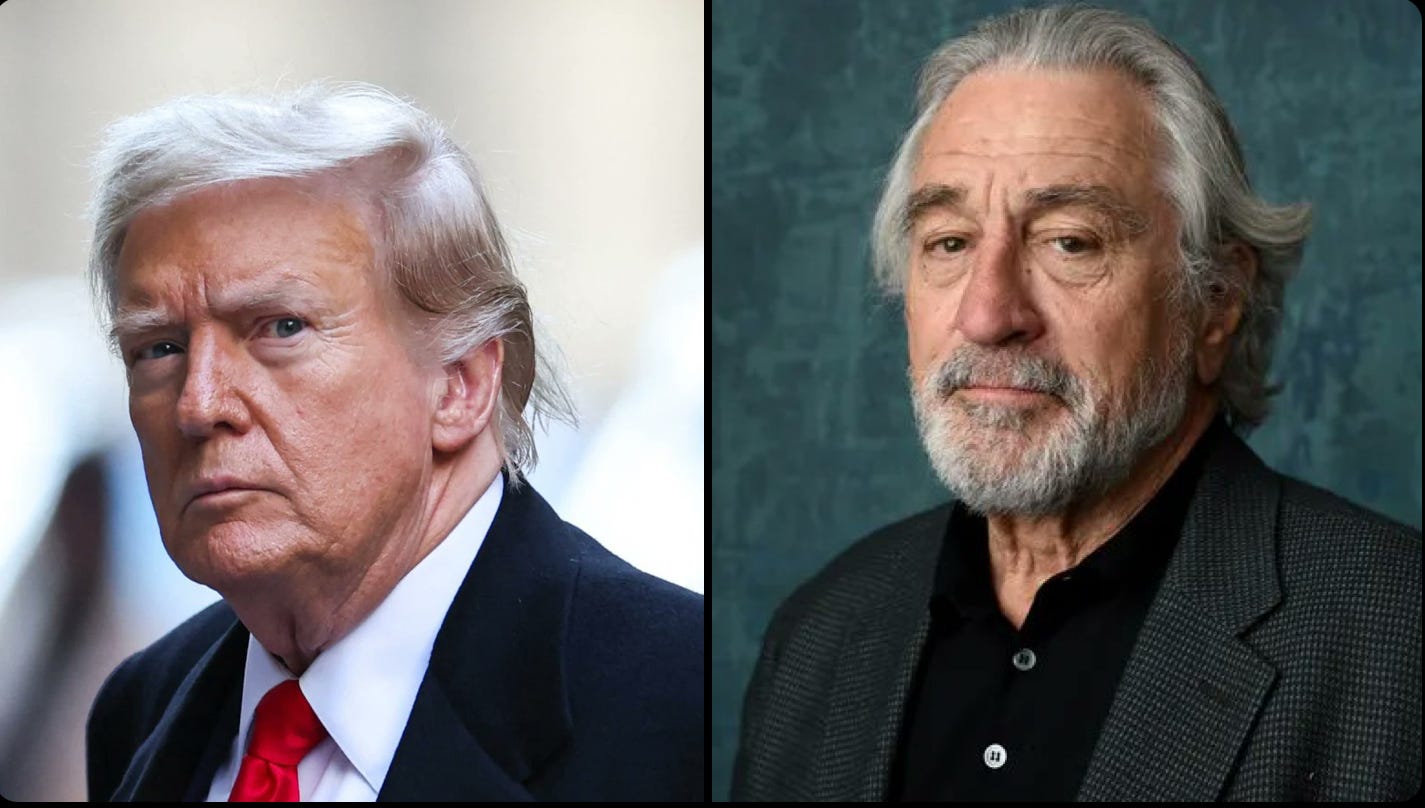

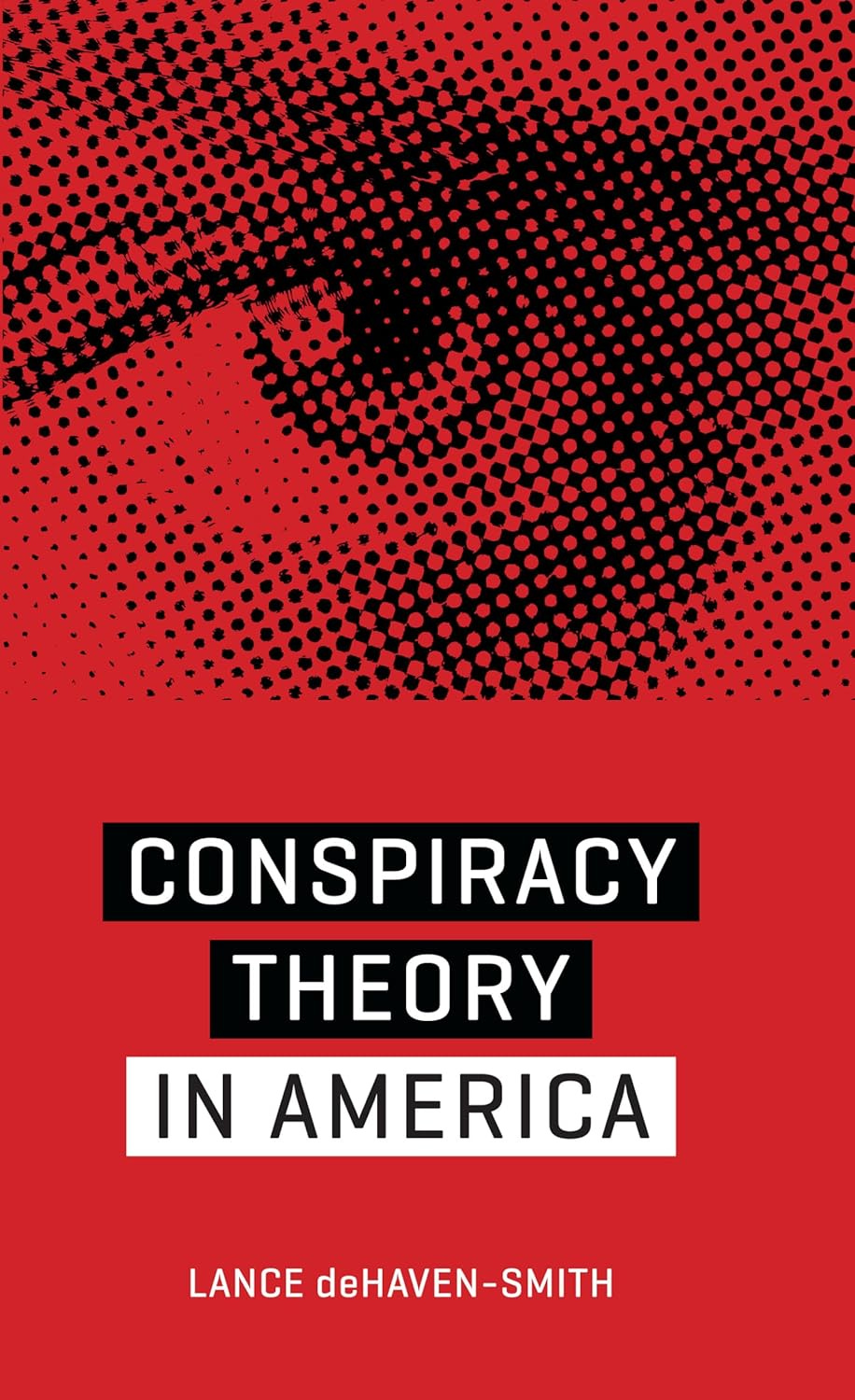
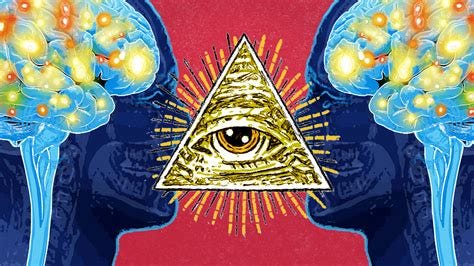
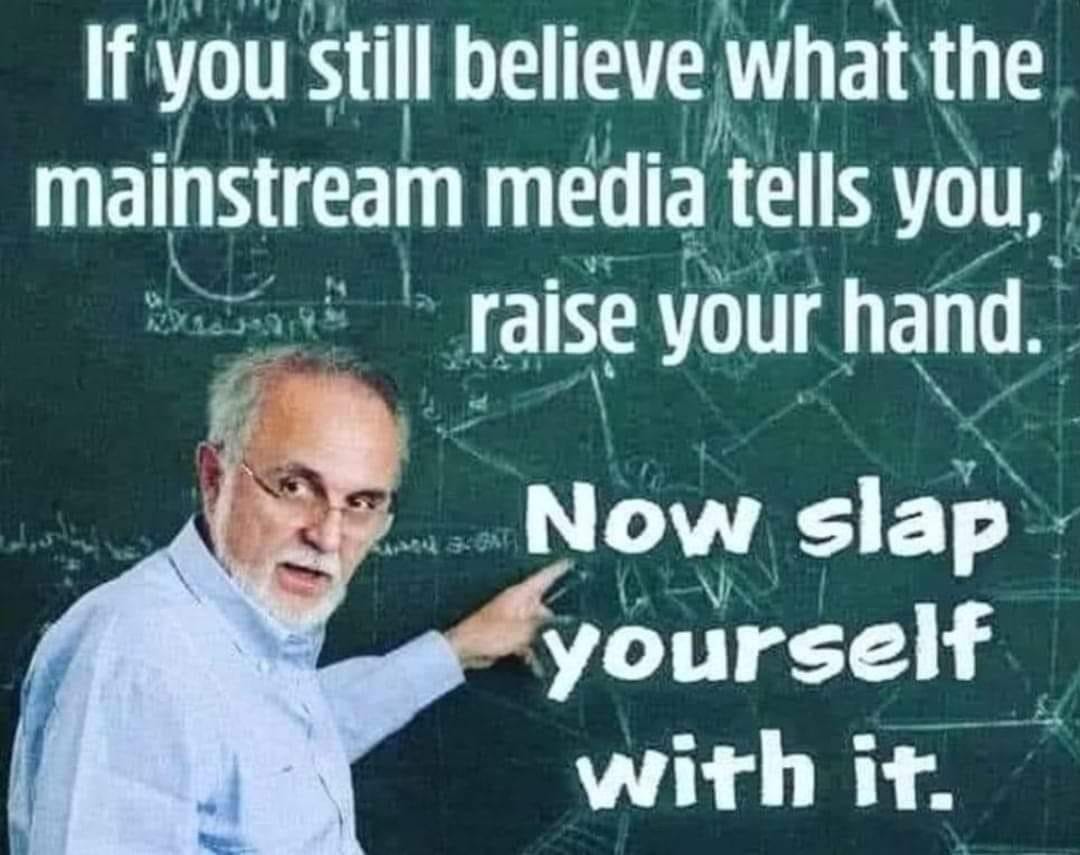
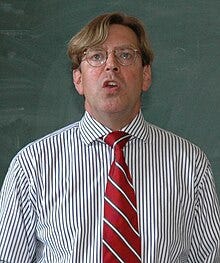
He who understands, understands not, and he who understand not, understands.
Vedic
"You ain't paranoid if they're really out to get you," —Tacitus
p.s.《Efforts throughout the West to termi(na)te free speech entitlements are alone evidence of that.》